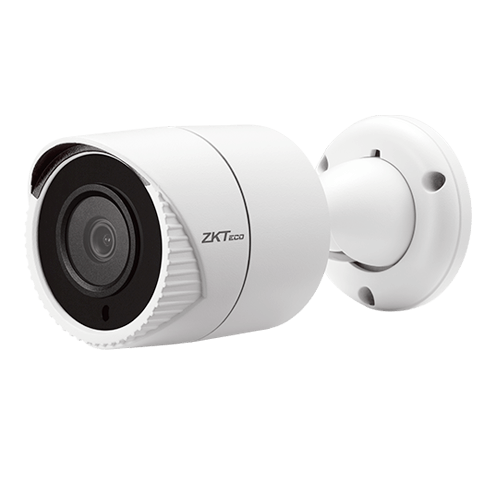
FAQ ABOUT CCTV CAMERAS
CCTV CAMERAS
Lately, more and more people have been on to the importance of CCTV cameras for different purposes such as surveillance, record keeping, monitoring, and more, while others still have eyebrows raised as to different aspects of the device.
What height should a CCTV camera be installed?
The majority of exterior surveillance cameras are installed on the main house structures or outer walls. These external house cameras, however, will not record the vital visuals unless they are set at the proper height, rendering them ineffective.

Mounting the cameras too low can invite vandals and miscreants, as well as provide an easy opportunity for thieves to circumvent the security system by breaking the camera lens. Furthermore, the cameras will lack a wider viewing angle, limiting their ability to observe and photograph the environment.
When the camera is mounted too high, you will only see the tops of visitors’ heads and no faces when viewing the obtained footage. The distance at which CCTV cameras may emit infrared to collect sights is limited. The camera will not be able to effectively illuminate the surrounding region if it is mounted too high, and hence will not capture clear visuals.
So, what is the best height for installing outside-home surveillance cameras?
Installing your surveillance cameras at a height of 7-8 feet is the best option. It’s just out of reach of a vandal or would-be robber while being close enough to catch faces and crucial information. There are certain advantages to mounting a camera at a greater elevation, such as 5 meters. It has the ability to capture a larger region and provide a more comprehensive perspective of the site.
How many megapixels is good for a CCTV camera?
![]()
Aside from price, the resolution is the most important aspect that influences a customer’s decision to purchase a camera. So, when we help clients with cameras, one of the most typical questions we receive is, “What resolution do you recommend for that position, that location, and so on?”
In the last five years, security camera technology has advanced significantly. Five years ago, the greatest camera resolution available at a fair price in the industry was a 700TVL Sony CCD chipset; however, 4k resolutions up to 12 megapixels are now accessible and are not as expensive. They’d be more advanced than 2-megapixel cameras, but yet reasonably priced and accessible to a wide range of users. But do they really need security cameras with a resolution of 4k and 12 megapixels? Almost certainly not.
Smooth motion is defined as any frame rate greater than 15 frames per second (fps). The maximum frame rate possible per device in CCTV is typically 30 frames per second (fps), which is called “real-time.” However, anything above 15 frames per second will look great. Different resolutions and frame rates will be listed on some devices. For example, an IP camera’s resolution can be listed as “3MP at 20fps” or “2MP at 30fps.” In this instance, we recommend utilizing the “3MP at 20fps” preset.
What is the best resolution for a CCTV camera?
The sensor, also known as the imager, is a camera internal component made up of a grid of pixels called photosites. These pixels store information about what is seen via the lens by capturing the intensity of light entering the camera. This data is then sent to the camera’s processor after it has been recorded.
The higher the number of photosites on a camera’s imager, the higher the resolution of the camera’s footage. A larger sensor, in most circumstances, includes more photosites and can thus record more data than a smaller one, resulting in higher resolution photographs.
Higher-resolution video and photos allow you to capture more information in your clip and zoom in more easily (after the recording has been made). High-resolution cameras, such as Ultra HD cameras, are ideal for capturing crowded areas such as parking lots, stadiums, and bars. High resolution (e.g., 8MP, 6MP cameras) comes at a cost: the devices are often more expensive, and the recordings take up more storage space. The best low-light cameras are frequently in the 4MP to 5MP range, which has consequences for night vision quality.
The best resolution for most security cameras is 4K resolution – 3840 x 2160p or about 8MP.
Which is the better IP Camera or analog CCTV?
CCTV (closed-circuit television), sometimes known as analog, and IP cameras, often known as network cameras, are the two main forms of video surveillance systems. Both analog CCTV and IP systems send footage to their intended destination. analog CCTV systems translate video signals into formats that televisions, VCRs, and DVRs can understand. IP cameras transform video signals into IP packets, which are then sent through a data network or the internet to a network storage device like a server or NAS, or stored on the camera itself. The IP system also has the advantage of being able to use network devices to extend the range of IP cameras beyond what a CCTV system can provide.
Both analog CCTV and IP camera systems have advantages and downsides when compared. When opposed to IP systems, analog CCTV systems have historically had a cheaper initial cost. However, this is rapidly changing as the cost of IP cameras and storage devices continues to fall. Indeed, numerous studies demonstrate that the total cost of ownership of a CCTV system is substantially higher during the system’s lifetime.
Another advantage of IP cameras is that their capabilities much outnumber those of analog systems. Today’s IP cameras have significantly higher resolution than analog CCTV cameras. When compared to analog cameras, IP cameras have a far greater field of view due to their better resolution. This means that by deploying IP cameras, you may reduce the number of cameras required to view a certain region, lowering the total cost of ownership. To see the same area as one 2 megapixel IP camera, up to six analog cameras are required. The table below lists popular analog and IP camera resolutions. D1 is the greatest resolution that an analog camera can achieve.
| Designation | H x V |
| CIF | 352 x 240 |
| 2CIF | 704 x 240 |
| 4CIF | 704 x 480 |
| D1 | 720 x 480 |
| 720p HDTV | 1280 x 720 |
| 1.3MP | 1280 x 1024 |
| 2MP | 1600 x 1200 |
| 1080p HDTV | 1920 x 1080 |
| 3MP | 2048 x 1536 |
| 5MP | 2592 x 1944 |
Another characteristic of an IP camera system that is not available in most analog CCTV systems is a digital zoom. The ability to “digitally” zoom in to both live and recorded video allows the user to examine the image in more detail. When examining recorded footage after an occurrence, This enables for better investigative study. The more pixels in an image, the more zooming you can do before it starts to break up. When trying to read a license plate or recognize a person, this is extremely important.
An onboard processor in IP cameras gives them more capabilities than analog cameras. Motion detection, cross-line detection, wide dynamic range, and improved low light functionality allow the camera to make adjustments and trigger events within the camera itself, allowing the video server to operate more efficiently, improving overall performance.
The benefits of IP cameras outnumber those of CCTV cameras.
IP video surveillance is gradually gaining traction as the industry standard. IP vs. analog CCTV is no longer a difficult choice, thanks to increased capabilities, scalability, and a reducing total cost of ownership.
Which is better 5mp or 4K?
Surveillance cameras with 4K video. Are They Appropriate For Me?
In the world of HD video surveillance cameras, 4K surveillance is the most recent offering. A camera with the 4K label will capture images at a resolution of about 12 megapixels or video at twice the resolution of a standard HD TV (1920 x 1080).So, have you considered purchasing a 4K security camera? Should you keep using security cameras with 5MP/1080p/720p resolution? That’s exactly what I’ll demonstrate in this article — 5MP vs. 4K
Let’s get started:
The resolution of 4K Ultra HD security cameras is 3840*2160, with over 8 million pixels. They’re also referred to as 8MP/2160p security cameras. Despite the fact that 4K-IP cameras are not currently budget-friendly or popular, they can undeniably improve your video streaming experience.
The resolution of 5MP Super HD security cameras, also known as 5MP security cameras, is 2560*1920. They are presently the industry standard in the security camera field, providing far sharper images than 1080p and 720p IP cameras.
Resolution |
Image size in pixels |
Pixels per image |
Aspect Ratio |
Scanning type |
4K |
3,840×2,160 |
8,294,400 |
16:9 |
Progressive |
5MP |
2,560×1,920 |
4,915,200 |
4:3 |
Progressive |
Which is better: 5 megapixels, 8 megapixels, or 1080p HD?
As we’ve always said, the best security camera system is one that perfectly and satisfactorily meets your needs.
If you want to enjoy the convenience of high-quality recording, a 4k surveillance camera kit is the best. It supports up to 8MP cameras that delivers clear and sharp images, rich in details and color. The system, nonetheless, requires you to have a significant budget to enjoy using it fully.
If your budget is not that big but enough for a higher resolution, get the best 5mp security camera system. It also offers quality images that you can zoom distant images without drastically reducing the clarity.
Need a Consultation, Contact SecureTech Nigeria.
